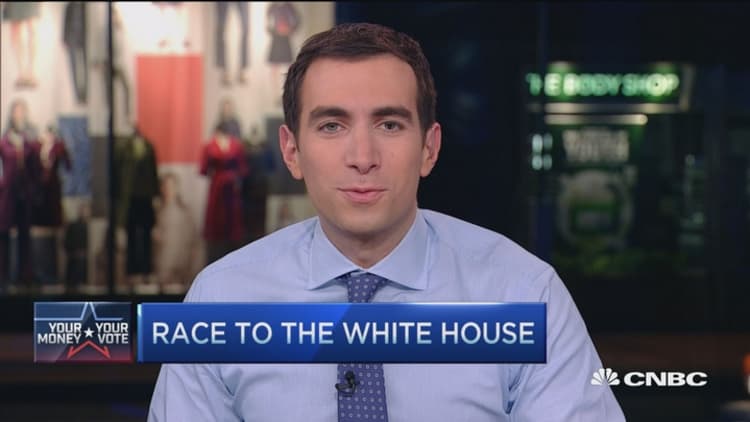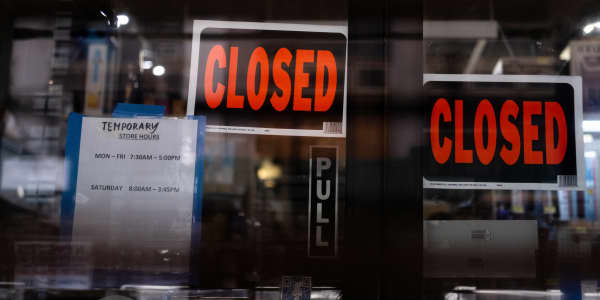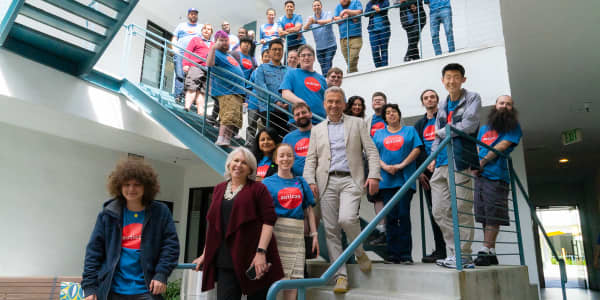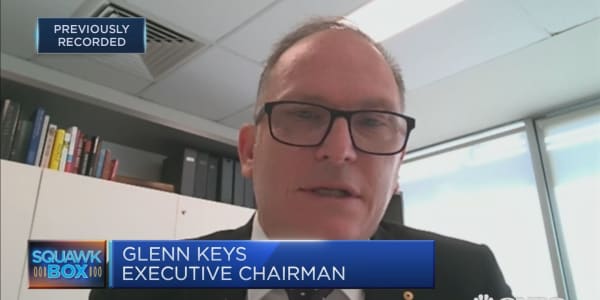
U.S. CEOs remain gloomy in their economic outlook, and notably, more pessimistic than some of their important counterparts around the globe.
While CEOs in a few other developed economy regions — Europe and Asia — showed an increase in confidence in the most recent YPO Global Pulse quarterly CEO confidence index, confidence from the group of near-1,000 U.S. CEOs surveyed declined in the YPO survey, conducted near the end of 2015.
Divergent central bank policies in two of the largest global economies factored in CEO confidence and expectations going forward. While the United States raised interest rates for the first time in a decade, the European Central Bank continued to cut an already negative deposit rate and extended quantitative easing into late 2017. With further stimulus measures expected to spur economic growth in the European Union, CEOs in the EU were more optimistic, registering a marginal increase in confidence during the final quarter of 2015.
Business leaders in the U.S., meanwhile, were hesitant to embrace the Fed's move and registered a slight decrease amidst anticipated tightening. This divergence in forward-looking confidence was apparent in the full-year 2015 reading on chief executive sentiment, as US CEO confidence declined by 9.02 percent, while EU confidence declined by only 1.17 percent.
U.S. CEO confidence declined for the fourth straight quarter but still registers the highest overall confidence reading of any region in the YPO CEO survey group.
The North American mood was among the most negative in the final quarter of 2015, as some other regions that already "bottomed out" due to ongoing economic slowdowns actually showed an increase in confidence, albeit off pessimistic base numbers. CEOs in Latin America and Canada registered the biggest shifts in sentiment during the quarter, but with Canadian sentiment declining by 7.38 percent and Latin American sentiment ticking up by 9.75 percent.
Asia, Europe and Latin America were the only regions where confidence trended up in the final quarter of 2015.
Overall, global CEOs ended 2015 as a more pessimistic bunch, with the confidence reading registering a decline of 7.16 percent from the 2014 year-end level.
Still, the overall index level of 58.0 globally is technically a reading that indicates optimism, albeit lower from the prior periods.
The three key global reads
Three major global economic events influenced CEOs across the globe during the fourth quarter and are expected to impact sentiment throughout 2016.
With "lower for longer" the new reality in oil, petroleum-producing countries continued to show a gloomy outlook. The African region represented the largest full-year decline in confidence for any global region and fell to its lowest level ever (51.0) in the final quarter of 2015 due to a huge drop in Nigerian confidence as oil prices plummeted.
While the decline in oil prices is generally good for the U.S. consumer, the speed and depth of the decline raises bigger questions about the domestic energy industry's ability to adapt to and ultimately survive the new "lower for longer" oil price environment. With oil prices down more than 30 percent at the end of 2015, companies are tripping covenants on their debt and, in many cases, are being forced to default. Ramifications in high-yield markets have been extraordinary, as energy represented roughly 14 percent of that market one year ago and some expect defaults could be in excess of 15 percent across the sector in 2016.
Oil prices will remain depressed as long as production remains high and growth in demand remains muted. UBS expects Brent to trade between $20 to $40 a barrel over the coming three months and only recover to $55 a barrel over the coming 12 months. The commodity is highly cyclical, so there will be a point at which production decreases enough to reduce inventory levels and drive prices back up to more sustainable long-term levels. The ambiguity over when that will happen and at what pace has put CEOs on hold with respect to their intention to increase fixed investment. CEOs surveyed were slightly less likely than during the previous quarter to put new capital investment dollars to work in light of the turmoil in China and commodity markets.
As the second-largest economy and one of the fastest growing for the last decade, China continues to weigh heavily on the minds of every CEO as GDP growth continues to slow. The country is deliberately transitioning from an industrial powerhouse that consumed an enormous amount of raw materials globally to a domestically driven, service-oriented economy. Amidst this transition, GDP growth has slowed from 10.6 percent to 6.9 percent annually. China's decreased focus on infrastructure and construction has led to a rout in commodity prices that has had crippling effects on the more export-driven emerging markets.
Many nations are feeling the pain from the transitioning economy. Brazil, South Africa, Indonesia, Colombia and Chile have all experienced year-over-year declines in YPO Global Pulse readings, with Brazil registering the largest decline, at -20.42 percent. Export-heavy developed nations, like Canada and Australia — also both natural resources economies —are showing a lack of confidence in response to reduced demand for goods from China.
Despite softness in the fourth quarter, the YPO Global Pulse survey indicates that CEOs remain optimistic and expect moderate GDP growth. However, with the potential for further interest-rate increases in the U.S., additional easing measures anticipated across Asia and Europe, a slowing Chinese economy and stock and bond market volatility, CEOs may take a more conservative approach to business management in 2016.
— By Christopher Moore, chief investment officer, Morristown, New Jersey-based wealth management firm Massey Quick
About YPO
CNBC and YPO (Young Presidents' Organization) have formed an exclusive editorial partnership consisting of regional "Chief Executive Networks" in the Americas, EMEA and Asia-Pacific. These Chief Executives Networks are made up of a sample of YPO's global network of 23,000 top executives from 120 countries who are on the front lines of the economy and run companies that collectively generate $6 trillion in annual revenues.





